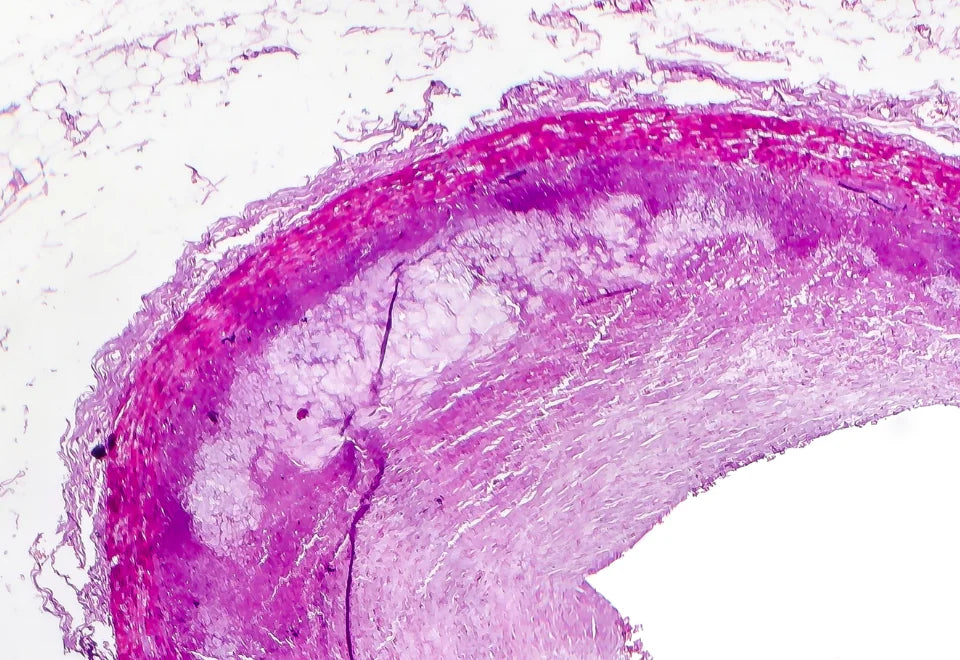Gut dysbiosis happens when the balance of good and bad bacteria in your gut is disrupted. This imbalance can lead to a wide range of issues, including body-wide inflammation, low energy, and digestive problems like bloating or nutrient malabsorption. It can even affect your mood and mental clarity due to the gut-brain connection.
How Gut Dysbiosis Affects Your Body
Links to Body Inflammation
When the gut microbiome is thrown off balance, it can lead to inflammation throughout the body. This happens because gut dysbiosis increases intestinal permeability, allowing harmful substances to enter the bloodstream. The majority of gut bacteria - Firmicutes, Bacteroidetes, Proteobacteria, and Actinobacteria - make up 93.5% of the microbiome. Disruptions in these groups can lead to overgrowth of harmful bacteria, sparking inflammation that can have widespread effects.
Effects on Energy Levels
Gut health plays a big role in how energized you feel. Research found that higher levels of the bacteria Anaerostipes were linked to better mental energy and less mental fatigue. On the flip side, a less diverse gut microbiome was associated with increased physical exhaustion [1].
Digestive System Problems
An imbalanced gut doesn't just sap your energy - it also disrupts digestion. Here are some common digestive issues linked to gut dysbiosis:
| Digestive Issue | Impact on Body |
|---|---|
| Nutrient Malabsorption | Leads to poor absorption of fat-soluble vitamins and other essential nutrients |
| Bacterial Overgrowth | Small intestinal bacterial overgrowth (SIBO) occurs when levels hit 10^5 CFU per mL |
| Motility Problems | Affects about 40% of adults worldwide |
| Metabolic Changes | Alters bile acid absorption and increases lactate production |
One review found that rifaximin treatment improved symptoms for 70.8% of patients dealing with gut-related issues [2].
Gut-Brain Connection
Gut dysbiosis doesn't just affect the body - it impacts the mind too. Inflammation in the gut can lead to the release of cytokines, which influence stress responses and mental health. Since diet shapes over half of the variability in gut microbiota, what you eat plays a huge role in both your gut health and emotional well-being.
Signs You May Have Gut Dysbiosis
Main Symptoms
Gut dysbiosis often shows up as gas, bloating, diarrhea, or constipation.
Hidden Warning Signs
Dr. Sarah Steinberg, MD, PhD, highlights that while some symptoms are clear, others might be easy to miss.
Some of these less obvious signs include:
- Skin problems: Issues like rashes, psoriasis, or recurring hives
- Mood changes: IBS patients are three times more likely to face depression or anxiety
- Cognitive difficulties: Trouble concentrating or memory lapses
- Food sensitivities: Developing new intolerances or reactions to foods
- Low energy: Chronic fatigue, reported by up to 54% of IBS patients
If you’re noticing these signs, it’s worth getting checked out by a medical professional.
Getting Medical Help
Spotting these symptoms is just the beginning. If you’re dealing with any of the following, it’s time to consult a healthcare provider:
- Symptoms last for more than a few days
- You have unusual or severe stomach pain
- You've recently had IBS, gastroenteritis, or food poisoning
- Your bowel habits change drastically
- Skin issues or rashes suddenly appear
A healthcare provider can recommend tests and treatments, including prebiotic or probiotic options.
"Studies in animal models and humans have shown that a persistent imbalance of the gut's microbial community, named dysbiosis, relates to inflammatory bowel diseases (IBD), irritable bowel syndrome (IBS), diabetes, obesity, cancer, cardiovascular and central nervous system disorders".
Steps to Fix Gut Health
Diet Changes
Adjusting your diet can impact your gut microbiome in as little as 24 hours. Focus on including:
-
Probiotic-rich foods:
- Yogurt with the "Live & Active Cultures" seal
- Fermented vegetables like sauerkraut and kimchi
- Miso and tempeh
-
Fiber-rich foods for prebiotics:
- Raspberries (8 g fiber per cup)
- Jerusalem artichokes (2.4 g fiber per cup)
- Pears (5.5 g fiber per medium fruit)
- Leeks (1.6 g fiber per cup)
"It's all about diversity, getting as many variety of plant-based foods as possible and hitting our recommended fiber intake of 30 g per day", explains Dr. Megan Rossi, founder of The Gut Health Doctor.
To maximize results, consider adding targeted pre- and probiotic foods to your routine.
Using Pre- and Probiotics
Certain strains of probiotics can address specific gut concerns:
- Lactobacillus: May help with diarrhea and improve lactose digestion
- Bifidobacterium: Could reduce IBS symptoms
- Saccharomyces boulardii: Effective for various digestive issues
When introducing prebiotics, do so gradually to avoid discomfort. Look for products that combine both prebiotics and probiotics for better results.
Daily Habits That Help
Your lifestyle choices also play a big role in gut health.
- Stress management: Try meditation, yoga, or outdoor walks daily.
- Sleep: Stick to a regular 7–8 hour sleep schedule.
"Your gut is often called your 'second brain' because it makes some of the same neurotransmitters that regulate moods. When your gut is happy, you feel happy, when your gut is sluggish, your brain doesn't work as well", says Dr. Mark Hyman, Medical Director of Cleveland Clinic's Center for Functional Medicine.
-
Eating practices:
- Chew your food thoroughly.
- Stay hydrated by drinking water throughout the day.
Supplement Options
If dietary and lifestyle changes aren’t enough, supplements can provide extra support. Probiotic supplements help introduce beneficial bacteria, while prebiotic supplements feed them. Start slowly and consult a healthcare professional to find the best options for your needs. Combined with earlier strategies, these steps can help you maintain a healthier gut and overall well-being.
sbb-itb-55c436e
Long-term Gut Health Care
Testing and Tracking
Keeping an eye on your gut health can reveal important insights. Back in 2015, DayTwo, Inc. showed that combining microbiome data with clinical information could lead to personalized solutions that work better than generic methods [3].
Here are some key tests to consider:
- Comprehensive stool analysis: Provides details on inflammation markers, immune health, and microbiome balance.
- Food sensitivity testing: Pinpoints specific foods that may cause issues.
- Gut permeability assessment: Checks how well your intestinal barrier is functioning.
Decode Age's microbiome test examines over 30 gut markers to create a starting point for your health journey. These results help shape a plan tailored just for you.
Custom Health Plans
Your gut health strategy should fit your specific needs. Studies suggest that a personalized diet often yields better results than one-size-fits-all recommendations [3].
A well-rounded plan might include:
- Dietary variety: Aim to eat 30 different plant-based foods each week.
- Consistent meal timing: Stick to regular eating intervals.
- Supplements: Use prebiotics and probiotics based on test findings.
- Avoiding triggers: Steer clear of foods identified as problematic.
"If it bothers you, stay away from it." – March Seabrook, MD, Gastroenterologist
The key is turning these recommendations into daily habits.
Building Better Habits
Consistency is the backbone of long-term gut health. Research highlights the importance of a varied diet.
"It's all about balance. What can really impact your gut in a beneficial way is eating the rainbow." – Lori Chang, Associate Director of Clinical Nutrition at MD Anderson
Here are some everyday steps to keep your gut in check:
- Stay hydrated: Drink at least eight 8-ounce glasses of water daily.
- Exercise regularly: Aim for 30 minutes of moderate activity five times a week.
- Get quality sleep: Stick to 7–9 hours of restful sleep each night.
- Manage stress: Spend at least 10 minutes a day on relaxation techniques.
Keep a gut health journal to track your progress, spot patterns, and tweak your plan as needed. Regular check-ins with healthcare professionals can help you fine-tune your approach over time.
Next Steps for Better Gut Health
Take control of your gut health with practical, science-based steps. Drs. Elizabeth Ko and Eve Glazier explain:
"We're talking about a lot of changes here, which can be overwhelming. You can improve your chance of success if you picture this new eating plan as a long-term project and proceed gradually".
Start by swapping processed foods for whole foods and adding fermented options like kimchi, kombucha, and kefir to encourage healthy gut bacteria. Include foods that support your gut lining, such as bone broth and salmon skin. Keep track of how these changes affect your gut health.
"Normal bowel behavior is to have a bowel movement anywhere from once every three days to three times a day. With unexplained abdominal pain, weight loss, blood in your stool and with a change in bowel habit, contact your doctor".
Here’s a simple daily checklist to help you stay on track:
- Morning routine: Start your day with a glass of water.
- Meal timing: Eat slowly and chew your food well.
- Movement: Aim for at least 30 minutes of moderate exercise.
- Stress management: Dedicate 10 minutes to meditation or deep breathing.
Building consistent habits like these can make a big difference in your gut health. If symptoms continue, reach out to a healthcare professional for a detailed evaluation and tailored advice.
FAQs
What is gut dysbiosis?
Gut dysbiosis is an imbalance in the gut microbiome, where harmful bacteria outnumber beneficial ones. This can lead to digestive issues, inflammation, fatigue, and other health problems.
How does gut dysbiosis lead to inflammation?
An imbalanced gut can weaken the intestinal barrier, allowing harmful substances to enter the bloodstream, triggering an immune response and increasing inflammation throughout the body.
Can gut dysbiosis affect mental health?
Yes, the gut-brain connection means that imbalances in gut bacteria can influence mood, cognition, and stress levels. People with gut dysbiosis may report brain fog, anxiety, or depression.

























Leave a comment
All comments are moderated before being published.
This site is protected by hCaptcha and the hCaptcha Privacy Policy and Terms of Service apply.